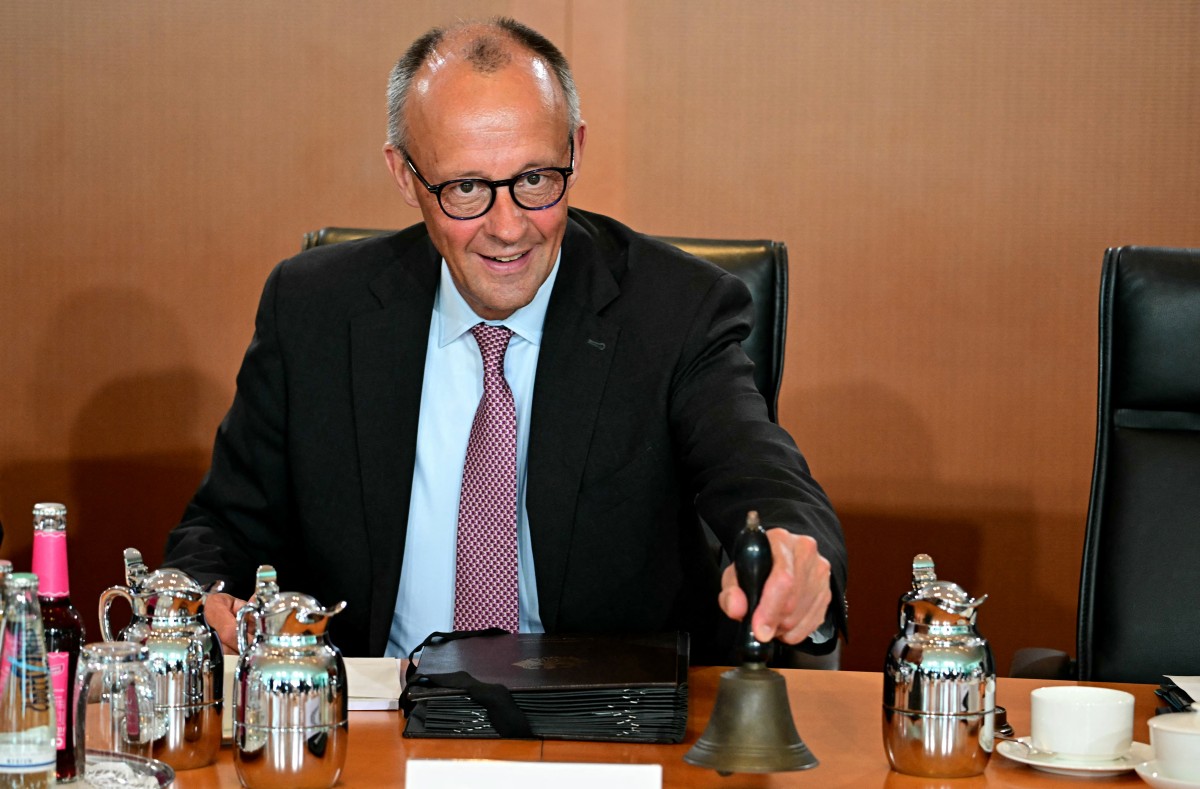Thursday's top story: Thunderstorms bring an end to the heatwave
After Germany's hottest day of the year so far on Wednesday, the current heat wave has come to an end.
According to preliminary data from the German Weather Service, the highest temperature was seen in Andernach in Rhineland-Palatinate: 39.3C was recorded around 3:30 pm.
READ ALSO: What are the rules around installing air conditioning in your home in Germany?
The heat was immediately followed by some severe thunderstorms, initially in western Germany. Fallen trees blocked rail traffic and roads in parts of North Rhine-Westphalia, cars were damaged by broken branches, and cellars were flooded.
Meanwhile, fire brigades were struggling with forest fires in other regions.
Due to a forest fire in Gohrischheide on the border of Saxony and Brandenburg, the town of Heidehäuser was evacuated. A total of around 100 people were affected.
Another fire in the district of Saalfeld-Rudolstadt in Thuringia, triggered a disaster alarm. Strong winds fanned fires in the afternoon, said a spokesman for the district, and around 250 hectares burned.
Climate researcher warns the government has the wrong priorities
Climate researcher Mojib Latif has accused Chancellor Friedrich Merz and Federal Minister of Economics Katherina Reiche of wrong political priorities in view of the current heat wave.
"This is climate-related extreme weather," the scientist from the GEOMAR Helmholtz Centre for Ocean Research in Kiel told the Redaktionsnetzwerk Deutschland.
"We are experiencing new records. At the end of June, it has never been as hot as it has been recently. The extremes are increasing. Nevertheless, year after year, except during Covid, we have new highs in emissions," Latif warned.
The chancellor and economics minister want to give priority to the economy, the climate researcher criticized: "I don't see a good development there at the moment...
"That's actually crazy and incomprehensible, especially if you look at southern Europe, where there are not only temperatures well above 30...even well over 40 degrees."
Chancellor Merz and his black-red coalition had just confirmed that they will not cut taxes on electricity for private homes as they had promised. But an abolition of a levy on gas remains. Climate policy experts suggest reducing consumer gas prices and not electricity prices encourages more use of climate harming fossil fuels and slows down electrification.
READ ALSO: 'Denial of reality' - Is Germany's future government ignoring the threat of climate change?
Taxi drivers protest in a dozen cities
Taxi drivers across Germany demonstrated Wednesday for stricter rules on competition from Uber and other companies with long taxi convoys in around a dozen cities.
In Berlin, drivers gathered with several hundred vehicles in the Tiergarten between the Brandenburg Gate and the Großer Stern. There were also rallies in North Rhine-Westphalia, including in Dortmund and Düsseldorf.
The industry has been in crisis for years due to declining demand, with taxi associations blaming ride-hailing platforms such as Uber and Bolt for the situation.
These platforms can offer rides at lower prices depending on demand because they are not subject to price regulation.
“It cannot be that we … have regulated fares and Uber, Bolt, and Co. can do whatever they want,” said Patrick Meinhardt, CEO of the German Taxi and Rental Car Association, at the demonstration in Hanover.
As expected, car rental platforms are critical of the measure. “Calls for more regulation do not improve the situation, but harm everyone,” Uber said.
A few months ago, the Berlin Senate banned numerous rental car providers because they were operating without permits or with forged permits. Now, every vehicle is subject to stricter checks before it can be listed on the apps. The number of rental cars in the capital has fallen significantly since then.
Ban on laughing gas and knockout drops
The German government has introduced a ban on laughing gas and so-called knockout drops.
The cabinet passed a draft law on Wednesday, which still has to be approved by the Bundestag.
In the case of laughing gas, cartridges containing more than eight grams will be banned. In addition, a general ban on the purchase and possession of these substances will apply to children and adolescents.
Federal Health Minister Warken emphasized that consumption is associated with high risks, especially for minors.
Nitrous oxide is increasingly being used as a party drug, while knockout drops are frequently abused by criminals in cases ranging from sexual offenses to robbery.
Merz under fire over gay pride gaffe
German Chancellor Friedrich Merz faced criticism Wednesday for saying a rainbow flag should not be raised at the Bundestag for Berlin's annual pride parade because the parliament is "not a circus tent".
Julia Klöckner, the new conservative president of the German parliament, announced in May that the rainbow flag would not be raised during the July 26 event, known as Christopher Street Day (CSD).
The rainbow flag would now only be raised once a year at the building, for the International Day Against Homophobia, she said.
Under Klöckner's predecessor from the centre-left Social Democrats, a rainbow flag had been raised for Berlin's CSD parade since 2022.
Merz on Tuesday defended the decision, saying the German parliament was "not a circus tent where any flag can be hoisted".

The decision has provoked protests from LGBTQ rights campaigners, as well as opposition politicians from the Greens and the far-left Die Linke.
LSVD, a major German queer rights organisation, accused Merz of insulting the LGBTQ community with his "blunder".
"The rainbow flag is not a circus item, but a universal symbol of diversity and human rights," board member Andre Lehmann told the ZDF broadcaster.
With reporting by DPA, AFP and Tom Pugh.

Comments